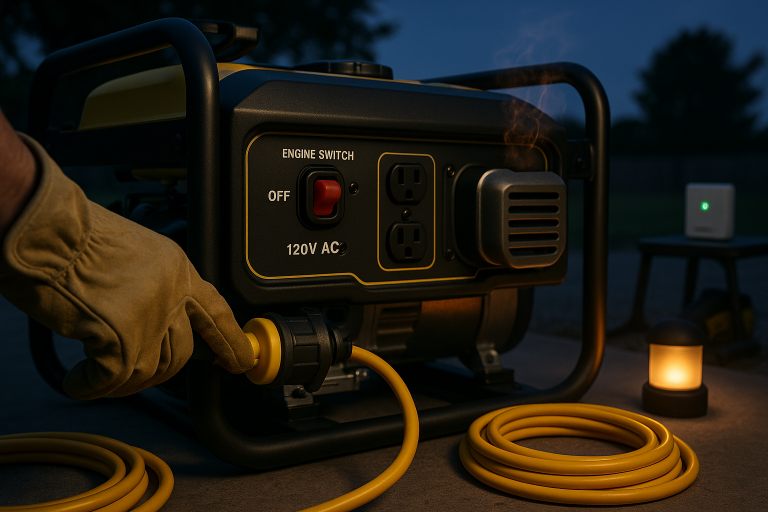Buying a Generator for an RV
As an RV owner, you know that having a reliable source of power is crucial for your travels. Whether you’re parked at a campsite or boondocking in the wilderness, a generator can provide you with the electricity you need to power your appliances, lights, and other devices. But with so many different types and models of generators on the market, it can be overwhelming to choose the right one for your RV. In this article, I’ll walk you through the key considerations when buying a generator for your RV and provide examples of some of the best options available.
Understanding Your Power Needs
The first step in choosing a generator for your RV is to determine your power needs. This will depend on the size and amenities of your RV, as well as how you plan to use it. For example, if you have a large RV with multiple air conditioners, a residential refrigerator, and a variety of other appliances, you’ll need a more powerful generator than someone with a smaller RV who only plans to use it for basic lighting and charging devices.
To determine your power needs, you’ll need to add up the total wattage of all the appliances and devices you plan to use simultaneously. You can find the wattage rating for each item in the owner’s manual or by searching online. Once you know your total wattage, you can look for a generator that can provide that amount of power or more.
Types of Generators
Once you have a good idea of the power you need, you can start looking at different types of generators. There are two main types of generators: portable and built-in.
Portable generators are designed to be easily transported and can be used anywhere. They’re a good option if you’re planning to take your RV on long trips and want to have a generator on hand in case you need it. They come in a variety of sizes and power outputs, and they’re typically powered by gasoline or propane. Some examples of portable generators include the Honda EU2200i and the Yamaha EF2000iSv2.
Built-in generators are permanently installed in your RV and are typically powered by propane or diesel. They’re a good option if you’re planning to use your RV for extended periods of time and want to have a consistent power source. They’re typically more powerful than portable generators, but they’re also more expensive. Some examples of built-in generators include the Onan RV QG 5500 and the Generac GP5500.
Other Considerations
When buying a generator for your RV, there are a few other things to keep in mind. One important consideration is noise level. You’ll want to look for a generator that is relatively quiet, so you don’t disturb other campers or nature. Another consideration is fuel efficiency. If you’re planning to use your generator for long periods of time, you’ll want to look for a generator that is fuel-efficient to save you money on fuel costs.
In addition, you’ll want to consider the size and weight of the generator. If you plan to move it frequently, you’ll want to look for a generator that is lightweight and easy to transport. You’ll also want to consider the warranty and customer support offered by the manufacturer.
Conclusion
Choosing the right generator for your RV can be a daunting task, but by understanding your power needs, considering different types of generators, and keeping other factors in mind, you can find the generator that best suits your needs. The Honda EU2200i, Yamaha EF2000iSv2, Onan RV QG 5500, and Generac GP5500 are all excellent options to consider. Make sure to do your research and choose a generator that will
provide you with the power you need while on the road. Remember to take into account your power needs, the type of generator, noise level, fuel efficiency, size, weight, warranty, and customer support when making your decision. With the right generator, you’ll be able to enjoy all the comforts of home while on the road and have the peace of mind that comes with knowing you have a reliable source of power.
In conclusion, buying a generator for your RV is an important decision that requires some research and planning. By taking the time to understand your power needs and considering different types of generators, you can find the generator that best suits your needs and budget. With a reliable generator, you’ll be able to enjoy all the comforts of home while on the road and have the peace of mind that comes with knowing you have a reliable source of power.

